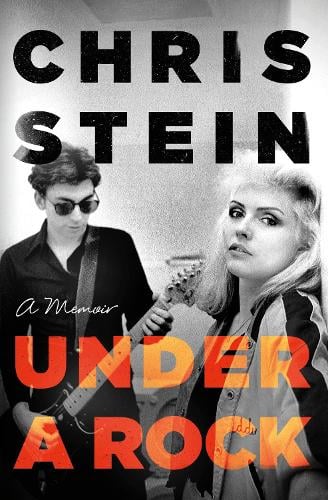This article was originally published in The Big Issue in 2024.
Freaks Out!,
Luke Haines, out now, Nine Eight Books, £18.65
The
Life and Times of Little Richard,
Charles White, out now, Omnibus Press, £16.99.
The
musician and author Luke Haines, formerly of The Auteurs and Black
Box Recorder, is a self-proclaimed Freak and proud. This, his fourth
book, is his Freak manifesto, a righteous celebration of gloriously
weird cult rock ‘n’ rollers who weren’t born to conform.
Part
memoir, part alternative history lesson, it revels in skewering
received wisdom and classic rock narrative orthodoxy, the “middlebrow
stranglehold of cultural mediocre thinking” that Haines – an
unabashedly opinionated curmudgeon - loathes with every fibre of his
pasty-faced being.
Like
all unabashedly opinionated curmudgeons with a sincere love of art
and a healthy sense of acerbic humour, Haines is often right and
often wrong, but he’s almost always entertaining. Key quote: “Rock
‘n ‘roll is a deadly serious business. It’s also very funny.”
The
book begins with a roll call of people who won’t understand or
enjoy it – Keir Starmer, Noel Gallagher, PE teachers etc. –
before careening off into a concentrated sprawl of thoughts on the
Freak flag hoisting likes of Gene Vincent, poor old Johnnie Ray, and
the none-more-drugged or doomed solo career of original Tyrannosaurus
Rex percussionist/uber-Freak Steve Peregrin Took.
We’re
also treated to typically serious/not serious theses on how Haines’
beloved childhood favourites The Shadows invented psychedelia, how
the Beatles unwittingly created the Male Genius Myth and thus ruined
rock ‘n’ roll forever, how Britpop begat Brexit, and why the
Doors are indisputably one of the greatest stupid bands of all time.
Haines
clearly doesn’t care if you agree with him or not, as Freaks are
above such polite considerations. When he casually dismisses the
entire output of Prince as worthless, without any attempt to back
that statement up, he’s fully aware that some readers will be
annoyed. That’s the joke: an outrageous opinion presented as a fact
so empirical it requires no further elucidation.
Haines
is a genuinely funny nuisance, and he can write. Imagine Lester Bangs
if Lester Bangs was reared in lower middle-class Portsmouth on a diet
of Metal Guru
and Apache.
Get your Freak on, people.
Little
Richard, the Big Bang of rock ‘n’ roll Freakdom, was a uniquely
magnificent and complicated cat whose many contradictions and wild
epoch-shaking genius were laid bare in Charles White’s riveting
1984 biography The Life and
Times of Little Richard.
This
latest edition features bonus chapters, previously unseen
photographs, and an exhaustive discography.
Written
with Richard’s full cooperation, it mostly consists of transcribed
interviews linked by White’s contextualising interludes. This
allows Richard and his associates to tell their versions of the
truth, which are far more interesting than anything White – a
rather prosaic writer - has to say. He’s such an awestruck fanboy,
he never challenges our sometimes unreliable narrator.
That,
however, works in the book’s favour. We spend unedited time in the
fascinating mind of Little Richard, a devoutly religious man who
never came to terms with his homosexuality and addiction to the
Devil’s music.
He
was constantly battling against himself, a sweet, eccentric,
vulnerable, self-loathing enigma who also – quite rightly – knew
he was the greatest. Little Richard is
rock ‘n’ roll, the originator of that hard, fast, funky, glorious
reason for living.
He
was also a hilariously frank raconteur. The book is festooned with
eye-popping anecdotes of a pornographic nature. You’ll never look
at Buddy Holly the same way again.
Flaws
and all, this is one of those rock biographies you really must
consume.









